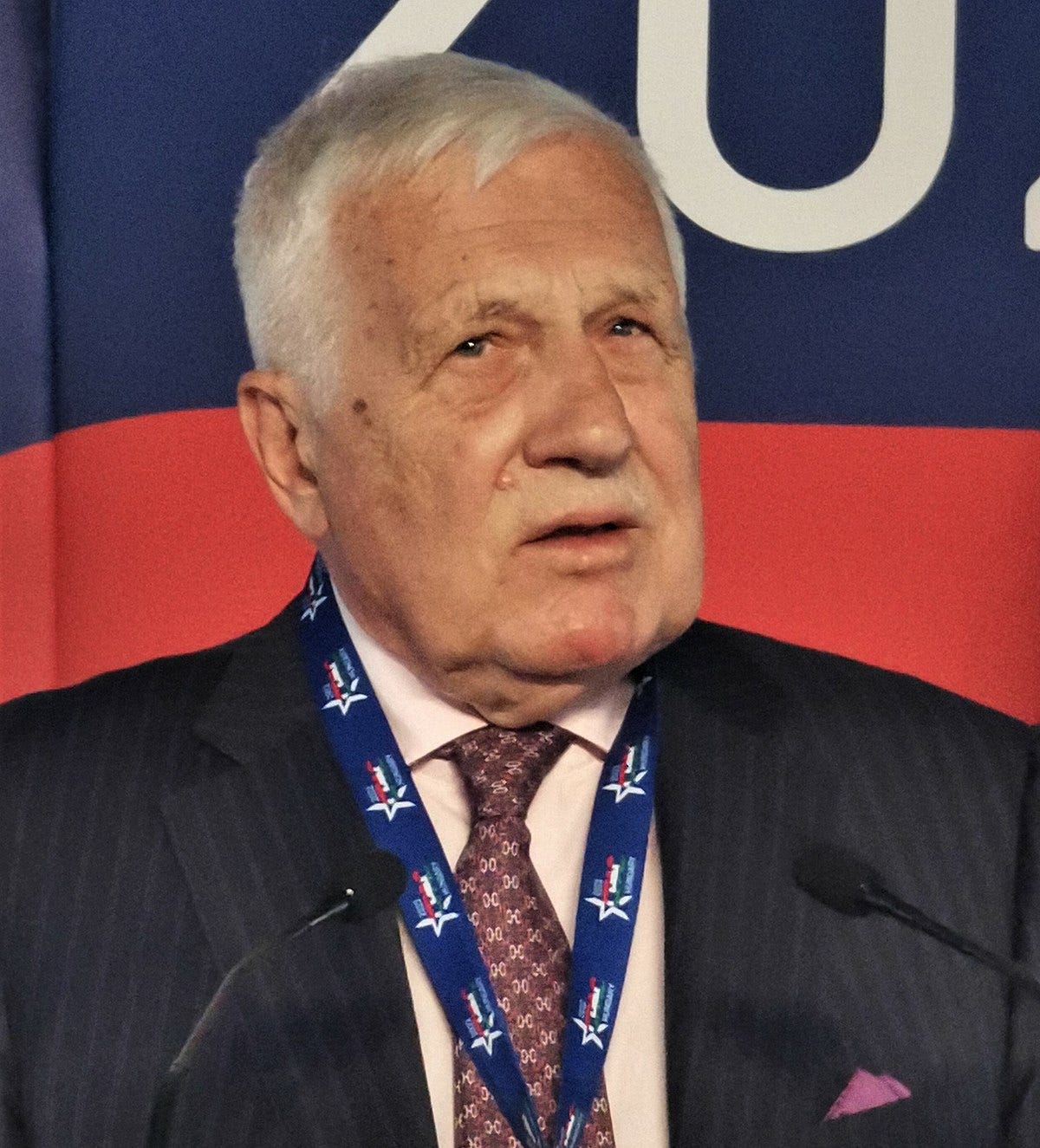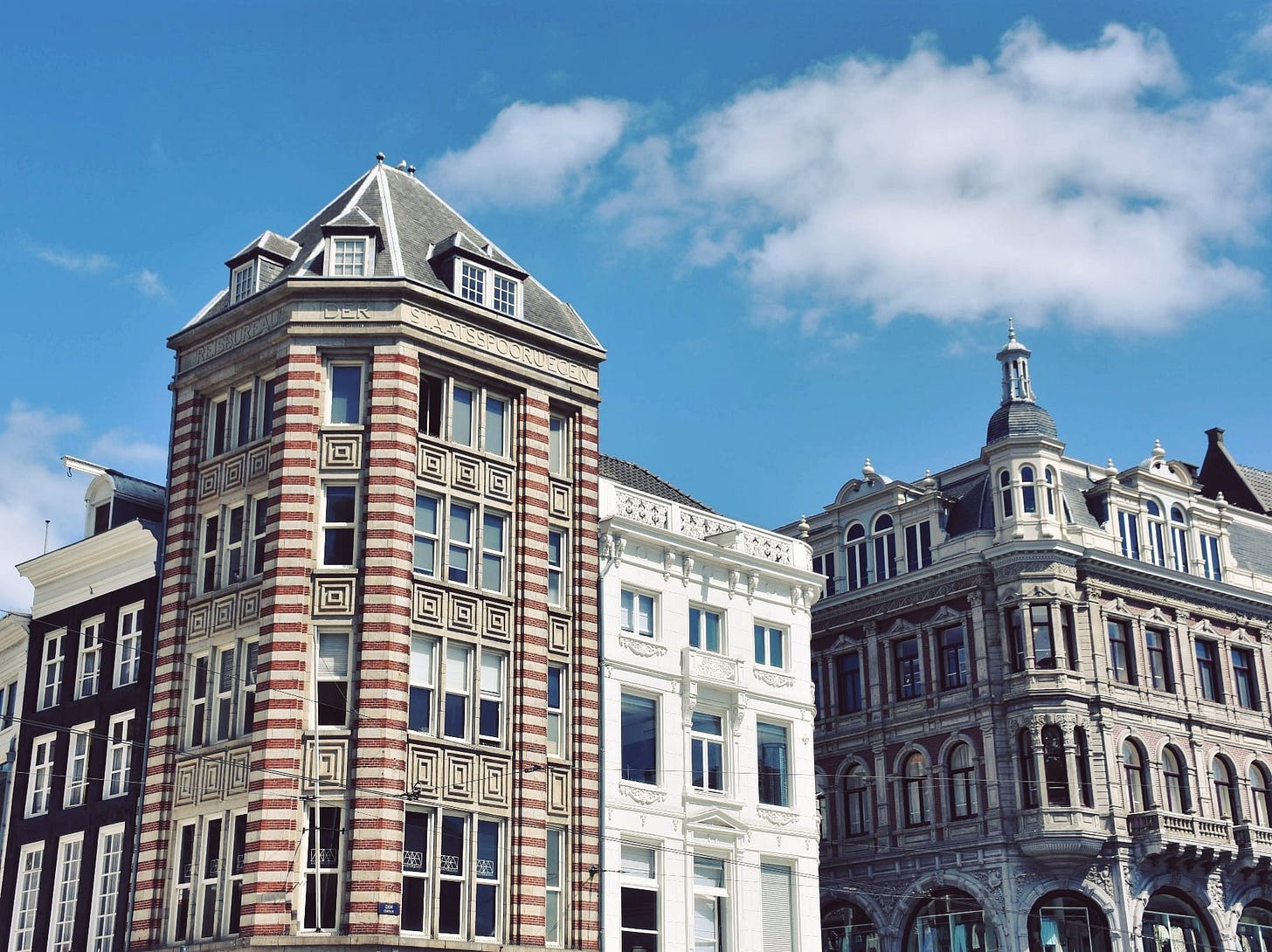Forced federalism
Conflating the ancient and diverse continental civilization of Europe with a modern institution, the EU, is leading us gravely astray, Václav Klaus has been pointing out for years.
In the former Soviet Union, the countries of Eastern Europe are said to have chafed under the yoke of a system (communism) imposed from above and controlled from the center. After its collapse, they bolted to the West in pursuit of freedom and prosperity, where they were greeted with open arms in the form of EU membership. Or so the conventional narrative would have us believe.
As, however, ever more power becomes centrally concentrated in the authoritarian, viscerally anti-democratic EU super-state, with its ever more heavy-handed efforts to forge “unity” and impose conformity from above, one wonders whether some may now be thinking that they may have leapt from the pan into the fire. Is this really what our neighbors in Eastern Europe bargained for?
As it turns out, at least one prominent Eastern European leader has been sounding the alarm for a very long time. He’s Václav Klaus, who served as president of the Czech Republic from 2003 to 2013.
In a recent podcast, Glenn Diesen and Alexander Mercouris had a brief discussion with the former president, in which the latter made an number of exceptionally salient points about our current trajectory. Klaus is a prolific writer, as I discovered as I explored the articles in the English-language section of his website. For example, he wrote the following in an OpEd for the Wall Street Journal in 2010:
After the fall of communism in 1989, the Czech Republic wanted to be a normal European country again as soon as possible, after being excluded from participating in the post-World War II European integration process for 41 years. The only way to achieve this was to become a member country of the European Union. We had no other choice, but the communist experience was still too "fresh." We wanted to be free and didn't want to lose our freedom and our finally regained sovereignty. Many of us were therefore in favor of a looser form of European integration, against the so-called deepening of the EU and against the creation of political union in Europe. People like me understood very early that the idea of a European single currency is a dangerous project which will either bring big problems or lead to the undemocratic centralization of Europe. My position was clear: With all my reservations, we had to apply for EU membership, but at the same time we had to fight against projects such as the euro.
(“The Euro as a Non-Optimum Currency Area”, Wall Street Journal, June 1, 2010)
In the discussion with Diesen and Mercouris, Klaus relates that such sentiments made him very unpopular in some quarters. When the Czech Republic joined the EU in 2004, relates Klaus, “people congratulated us by saying: Welcome to Europe! But I said: we were already European.” For far too many people, Europe is identified with the EU, he says. Europe the civilizational and cultural entity is conflated with a still very young institution. Klaus makes the point that it is necessary to make a strict distinction between the two. Understanding the difference between the EU and Europe is fundamental for any serious discussion of the issues, he says.
In 2009 President Klaus gave a speech in the EU parliament speech in which he called for an open debate on what it meant to be European. Many MEPs got up and left. “ I was considered anti-European,” Klaus says. “They hate me in Brussels.”

For Klaus, the EU in its earlier form, the European Economic Community (EEC) was something positive, cooperation was to be welcomed, it enabled the free flow of people and capital. That changed in 1992 with the increasing thrust towards political unification as defined in the Maastricht Treaty, even more so with the 2009 Lisbon Treaty. Klaus said he resisted signing Lisbon, but came under tremendous pressure to do so, by Brussels, the more powerful member states, and what he describes as “powerful Left intellectuals” in the Czech Republic. The country finally did ratify Lisbon, the last EU member-state to do so.
Diesen raised the issue of sovereignty and nationalism. “We cannot talk about nationalism, it has a bad name, very negative associations”, Klaus replied. But a careful parsing of his subsequent comments indicated that is a matter of terminology for him; the term “nationalism” is tainted by ugly historical antecedents, but he is all in favor of advocating for the nation-state and resisting supra-national entities.
Change will not come from Brussels, we must change the political culture of the individual member-states, says Klaus. We need a return to traditional politics, a return to ideologically well-defined political parties. We currently have institutions that look like political parties but which do not have coherent ideas and policies. Millions of people might agree with the three of us, but we have no political voice. We must restart politics at the individual member state level. It is the only way forward.
Hungary, says Klaus, is in a different situation and the one clear exception; it is a country with a genuine leader backed by a real political party, a party with a clear constituency.
The first president of post-Soviet Czechoslovakia, Václav Havel, hated political parties, says Klaus. He cultivate institutional power based NGOs and other instruments of civil society. That cannot work. Traditional political parties are the only game in town. “No other institutions can aggregate political power.” Klaus says that he was responsible for re-introducing political parties after fifty years of communism.
Klaus states that “communism was wholly discredited in Czechoslovakia after May 1968”. It was easy to abandon an discredited system, he says. Where are we now in terms of the credibility of the EU political project, Klaus asks. “Not 1989, not 1968. Maybe 1961 or even 1951.”
In this brief discussion, Klaus and his interlocutors do not have time to address the Ukraine conflict in any substantial way, but let me simply add this: Russia’s military incursion into its neighbor is clearly fracturing the highly tenuous and profoundly illiberal effort to impose political unification on the EU member-states. Every crisis in recent years has been the opportunity for a power-grab by Brussels and this one is no exception; the misguided and largely failing efforts to impose an EU-wide energy policy is but one example. Klaus saw very early on where this is going; he was and remains absolutely right.
Václav Klaus’s critique of the EU political project I find compelling, his ideas in the realm of economics less so. Exploring his website, I came across a comment in which Klaus expresses his great admiration for Milton Friedman:
To my great regret, Keynes is the winner of the day, not Milton Friedman. This is something I did not expect, but that is the new reality. Friedman, not Keynes, was my hero in the dark days of communism and it is frustrating that in the bright days of “the brave new world” of the EU and of “liberal democracies”, Keynes is back on the pedestal.
(“Keynes is the winner of the day, not Milton Friedman”, Claudio Grass, pro aurum, November 10, 2022)
If Klaus and others of his persuasion in Eastern Europe felt that the system was not an organic development that arose within their societies, but rather imposed from above, and that, as anti--communists frequently claim, it was rigid and oppressive, I for do not feel entitled to question or dismiss this point of view. I did not grow up in the Soviet Union and did not have any direct experience with the system, aside from a few hours spent one afternoon in East Berlin in the late 1980s before the fall of the Wall. However, I have seen firsthand how liberalism over the past three or four decades gradually destroyed the prosperity of the United States, where I was born, and the really pernicious impact it has had on European society. During his time, Milton Friedman was probably the best known proponent of the profoundly fundamentalist free-market ideology that served as the intellectual framework for the Reagan/Thatcher counter-revolution.
To denounce and renounce one purportedly rigid ideology (communism) only to embrace another (neoliberalism) hardly seems like progress to me.
By way of contrast, I would like to mention a compatriot of Václav Klaus, the late journalist Andre Vltchek, who sadly died in 2020. He was younger than Klaus, but in his youth would have shared some of his impatience with the communist system and his yearning for the “freedoms” of the West. His life however took him in a different trajectory; he became a dedicated and vociferous anti-capitalist and anti-imperialist. Shortly before his death, he wrote a very moving essay about how he felt that he had been profoundly deceived about the West as a young person; it is painfully sad to read: “How we sold Soviet Union and Czechoslovakia for plastic shopping bags” (June 19, 2020). As readers may know, he traveled widely and was a prolific writer, and among other topics, he wrote extensively about Indonesia. His vivid, horrifying descriptions of the truly dystopian environmental degradation of Sumatra remain permanently engraved in my mind, as do his descriptions of Jakarta, a massive city choked by traffic with virtually no public services. Vltchek came to see Indonesia as a poster-child for wholly unfettered, “freemarket” capitalism; the logical endpoint of the system that Milton Friedman so fervently espoused. I wish I could ask President Klaus: how is it that you could see so clearly the faults of the old system but not the egregious shortcomings of the current one?



Wonderful piece! Many thanks.
I would quibble about "“communism was wholly discredited in Czechoslovakia after May 1968”.
Incompetence and, perhaps, cultural maladaptation were discredited. China has shown that a traditionally receptive, communalist culture with a competent bureaucracy like China's can make it work better than any system in history.
I liked this article, but i will go further I see federalism as the steps to fascism